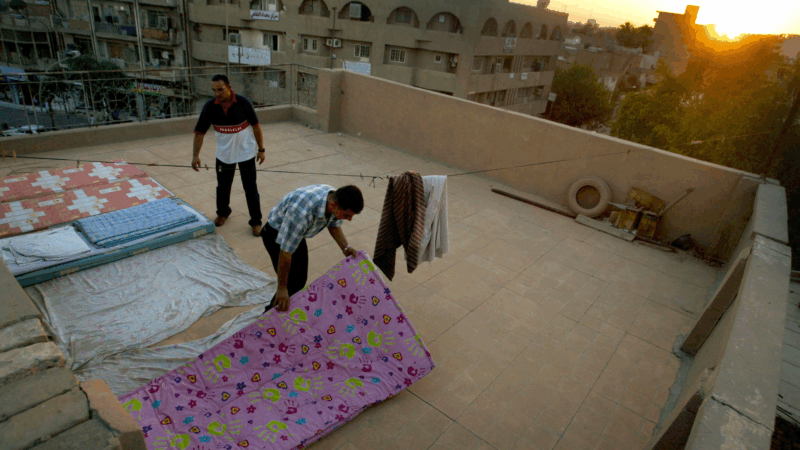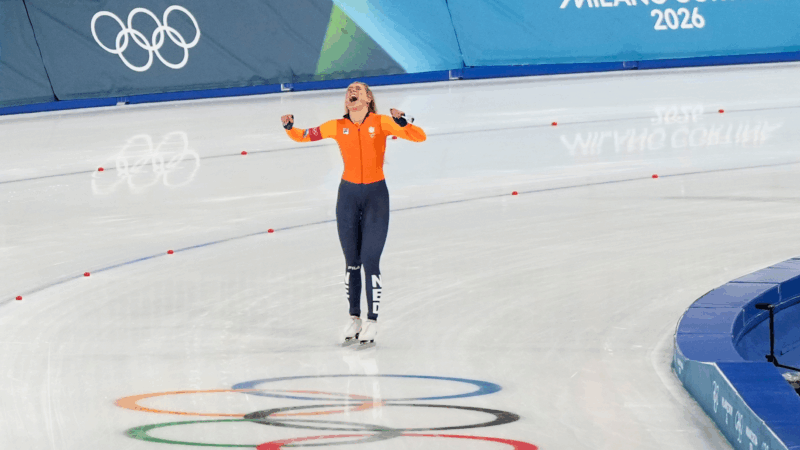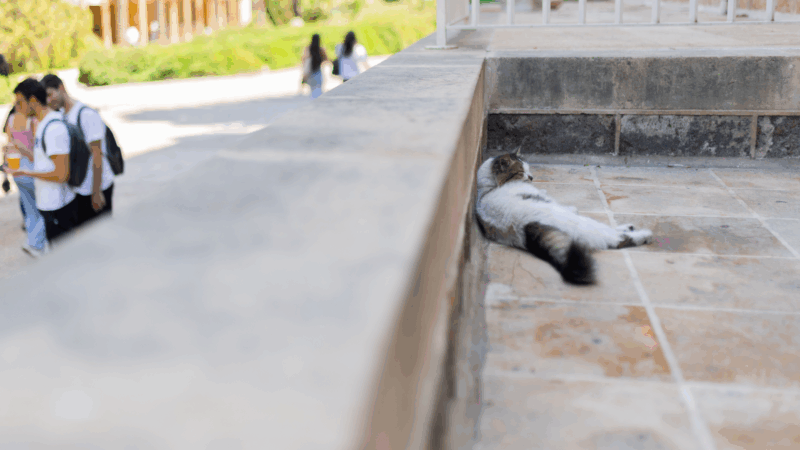Climate change is boosting the risk of sleep apnea
Everyone knows the feeling: tossing and turning during a hot, sticky night when sleep feels impossible.
It’s hard for anyone to sleep well when it’s hot out. And the disruptions are growing, especially for those suffering from sleep apnea, as climate change pushes up temperatures day and night around the globe. A new study published in the journal Nature Communications found that the chance of having any kind of sleep apnea problem overnight goes up by almost 50% when it’s 80 degrees Fahrenheit or warmer, compared to when temperatures are in the 50s.
And the severe cases — when people stop breathing more than 30 times in a single hour — go up, too. “You also increase the likelihood of having severe sleep apnea by 40%,” says Bastien Lechat, a sleep expert at Flinders University in Australia and the lead author of the new study. “It’s a striking number.”
In sleep apnea, people’s breathing stops and starts while they rest. The disorder can keep people’s bodies from getting enough oxygen and disrupts sleep. An estimated one billion people worldwide deal with sleep apnea, though it’s underdiagnosed, says Lechat. And the impacts of so much disrupted sleep are hefty. People’s moods and ability to work are affected, and sleep loss contributes to many other health problems from heart attacks to strokes.
“We all know what it means to have a bad night of sleep,” says Sara Mednick, a sleep expert and neuroscientist at the University of California, Irvine, who was not involved in the study. But science shows that the cumulative impacts of bad sleep, she says, trickle out beyond the person feeling tired. “It’s a whole global problem that we need to really think about,” she says.
The study used about two years of sleep data from more than 125,000 people, in 41 different countries worldwide.The data tracked detected sleep disruptions with sensors placed under people’s mattresses and tracked changes in sleep apnea incidents over time, and compared that sleep data with temperature where people lived. As temperatures climbed, people’s sleep apnea got worse.
The risk of having a severe sleep apnea event when it was very hot out nearly doubled in many northern countries, like Europe and Russia. It went up by about 40% in countries like the U.S.
Lechat thinks the differences might stem from air conditioning access — one factor the study couldn’t take into account. Fewer people in Europe use air conditioners than in the U.S. or Australia, leaving people exposed to the full impact of hotter temperatures day and night.
Climate change has pushed up global temperatures over the past few decades, and that extra heat is costing people sleep already, the study found. The U.K, for example, has warmed just over a degree Fahrenheit since 2000; the overall health cost from heat-worsened sleep apnea issues grew by more than 90% as time passed and temperatures climbed. As temperatures rise further, the impacts will also grow, Mednick says .
“As temperature gets higher, our sleep quality gets lower,” she says. And that means “we are just going to continue to lose sleep” as climate change marches forward.
Other recent studies found that climate change is disrupting sleep for people without disorders like sleep apnea, too. A study using millions of Fitbit sleep records worldwide found that people fell asleep later, woke up earlier, and slept more poorly as temperatures went up — and that people didn’t get better at dealing with the heat over time. Another study in China found that a 10-degree Celsius (18-degree Fahrenheit) jump in temperatures cut sleep time by about 10 minutes per night in China.
The message from those studies, and the new research, is unambiguous, says Nick Obradovich, a data scientist at the Laureate Institute for Brain Research in Oklahoma, who worked on several sleep-and-climate focused studies in the past but was not involved in the new study. “As temperatures increase, people sleep less well across all the measures, across all the places that we’ve seen so far.”
To reclaim good sleep, Obradovich says, the first goal is stopping temperatures from rising more. But controlling your sleep environment likely helps too, by cooling it down with fans or air conditioning.
“My worry is for people who can’t do that,” Lechat says. For people in vast swaths of Earth without access to cooling, the future looks hotter and filled with more sleep disruptions.
Malinowski concedes to Mejia in Democratic House special primary in New Jersey
With the race still too close to call, former congressman Tom Malinowski conceded to challenger Analilia Mejia in a Democratic primary to replace the seat vacated by New Jersey Gov. Mikie Sherrill.
FBI release photos and video of potential suspect in Guthrie disappearance
An armed, masked subject was caught on Nancy Guthrie's front doorbell camera one the morning she disappeared.
Reporter’s notebook: A Dutch speedskater and a U.S. influencer walk into a bar …
NPR's Rachel Treisman took a pause from watching figure skaters break records to see speed skaters break records. Plus, the surreal experience of watching backflip artist Ilia Malinin.
In Beirut, Lebanon’s cats of war find peace on university campus
The American University of Beirut has long been a haven for cats abandoned in times if war or crisis, but in recent years the feline population has grown dramatically.
Judge rules 7-foot center Charles Bediako is no longer eligible to play for Alabama
Bediako was playing under a temporary restraining order that allowed the former NBA G League player to join Alabama in the middle of the season despite questions regarding his collegiate eligibility.
American Ben Ogden wins silver, breaking 50 year medal drought for U.S. men’s cross-country skiing
Ben Ogden of Vermont skied powerfully, finishing just behind Johannes Hoesflot Klaebo of Norway. It was the first Olympic medal for a U.S. men's cross-country skier since 1976.







